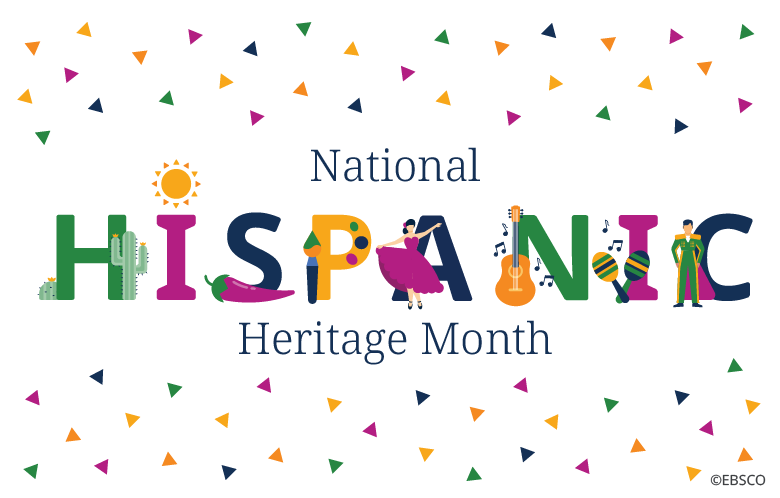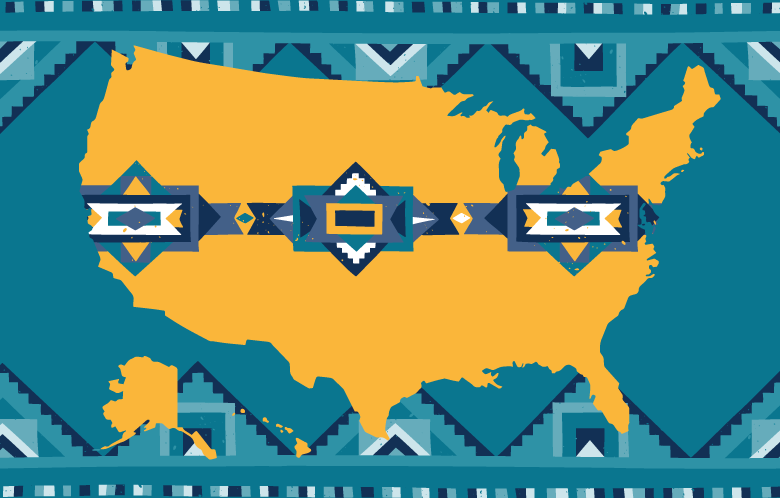Native American Heritage Month is a time when we honor the history, culture and traditions of the continent’s first inhabitants. For schools, libraries and organizations observing the month, and others who may be looking for ways to incorporate programming related to Native American heritage, we offer the following useful resources.
Collection Development
Visitors to the American Indian Library Association website will find a wealth of school library resources and public library resources including booklists, blogs and projects devoted to the history and culture of Native Americans. Librarians may also wish to consult these tips for choosing culturally appropriate books and resources about Native Americans.
Additionally, NoveList Plus can help librarians find fiction and nonfiction celebrating Native American characters and culture. Promote your collection with LibraryAware's Native American Heritage Month book flyers, display signs, social media posts, and more. If you’re looking to add new books by and about Native Americans to your library shelves, Core Collections has great recommendations for you. Here are just a few:
- We Are Water Protectors, written by Carole Lindstrom, illustrated by Michaela Goade
Inspired by the many Indigenous-led movements across North America, this picture book issues an urgent rallying cry to safeguard the Earth’s water from harm and corruption.
- A Snake Falls to Earth by Darcie Little Badger
Fifteen-year-olds Nina and Oli come from different worlds, but their lives intersect when Oli journeys to Earth to find a cure for his ailing friend and they end up helping each other save their families.
- My Heart Is a Chainsaw, by Stephen Graham Jones
Angry teenager Jade Daniels puts her encyclopedic knowledge of slasher films to good use when an actual killer begins terrorizing her town.
- The Heartbeat of Wounded Knee, by David Treuer
Treuer provides a sweeping, readable history of Native cultures surviving and adapting since Wounded Knee, countering their traditional erasure from narratives of 20th- and 21st-century American history.
If you’re planning to expand your library’s e-book collection, check out the Indigenous History of the Americas or Indigenous Studies: United States. Download the poster for this year’s digital reading and listening picks!
Academic Research
Need to provide researchers with a full-text resource covering diverse ethnic groups including Native Americans? Try EBSCO’s new Ethnic Diversity Source featuring more than 13,000 full-text records, 485 e-books and more than 100 videos covering the culture, traditions, social treatment and lived experiences of Native Americans.
In addition, EBSCO offers Bibliography of Indigenous Peoples in North America, a database containing more than 350,000 citations for books, essays, journal articles and government documents of the United States and Canada. It is an ideal resource for anthropologists, educators, historians, political scientists, sociologists, psychologists, legal researchers, linguists, theologians and policy makers.
K-12 Resources for Teaching and Learning
Educators can find a wealth of internet materials to help them create meaningful learning experiences for students of all grade levels. What’s more, many sites offer helpful advice and resources for teaching Native American history with cultural sensitivity.
For standards-based lessons, educators can visit the Native Knowledge 360° site from the Smithsonian National Museum of the American Indian and search instructional and information resources by Essential Understanding.
In addition, the Library of Congress has published a variety of blog posts that explore teaching about Native American history and culture using primary sources. Students can learn about Native American newspapers and read oral histories of Native American veterans who served in the U.S. military from World War II to Iraq. Teachers will also find a collection of classroom materials, including primary source sets, lesson plans and presentations.
Finally, ABC-CLIO’s American Mosaic: The American Indian Experience, a subscription database available through EBSCO, provides in-depth historical accounts and cultural information about more than 500 American Indian nations. The database’s educator support center provides subscribers with resources for classroom and library integration.



